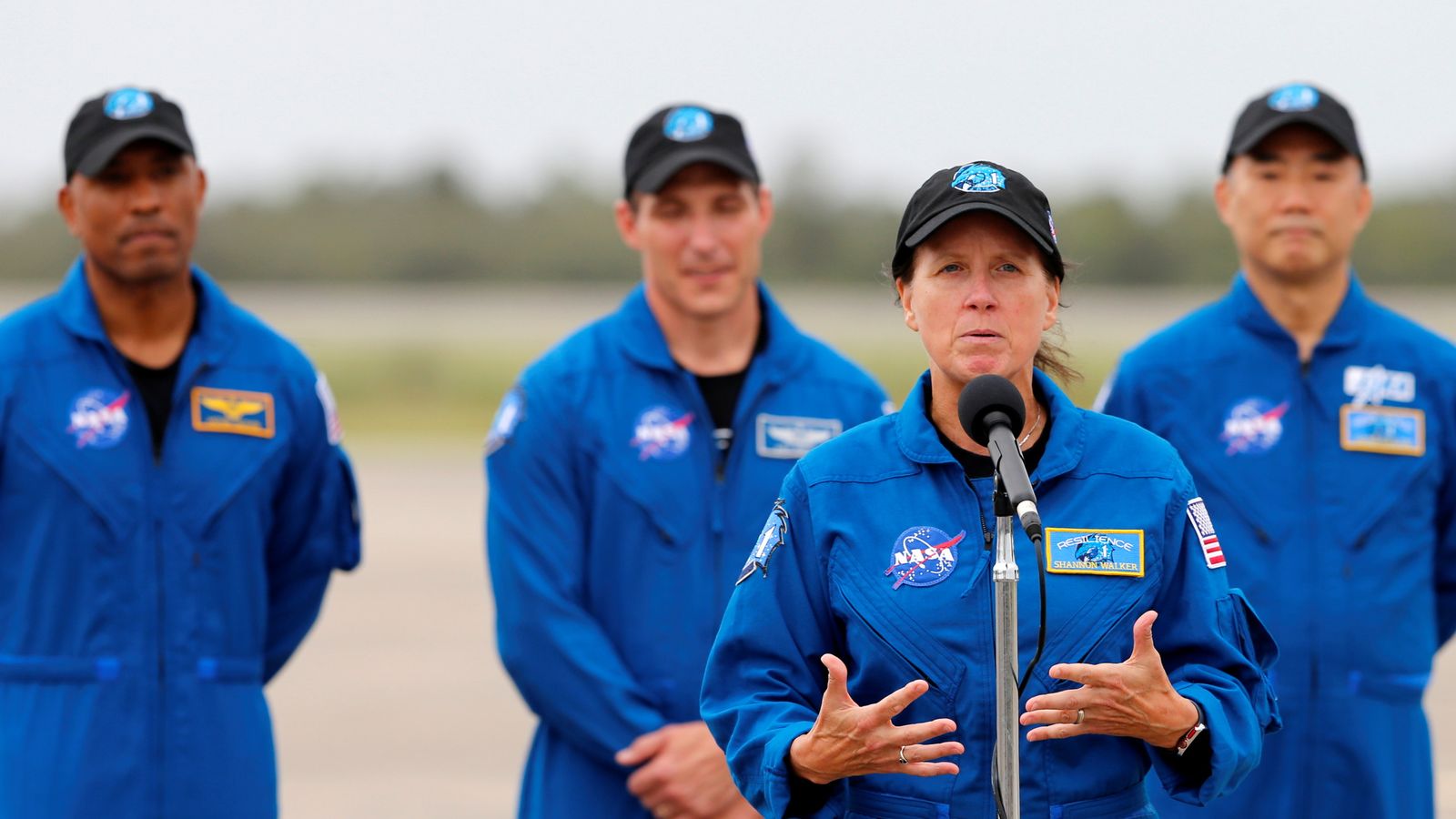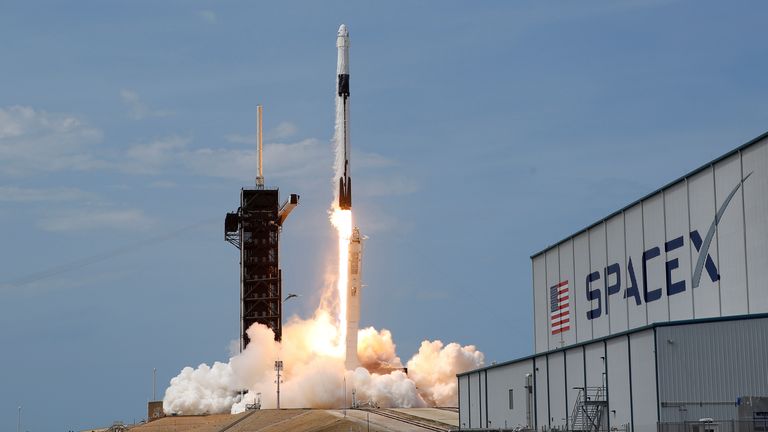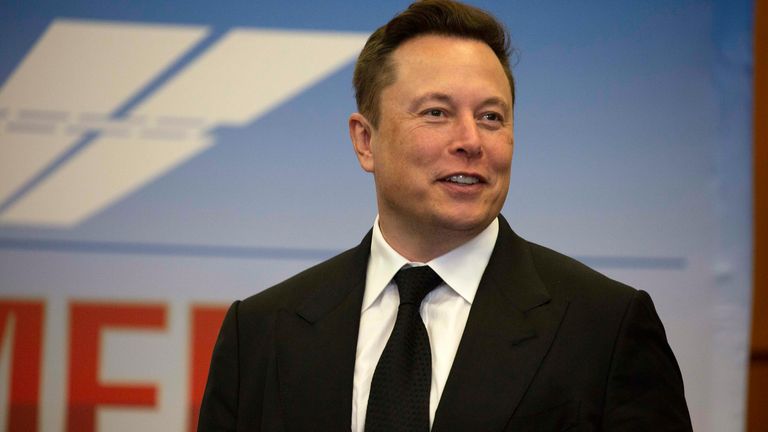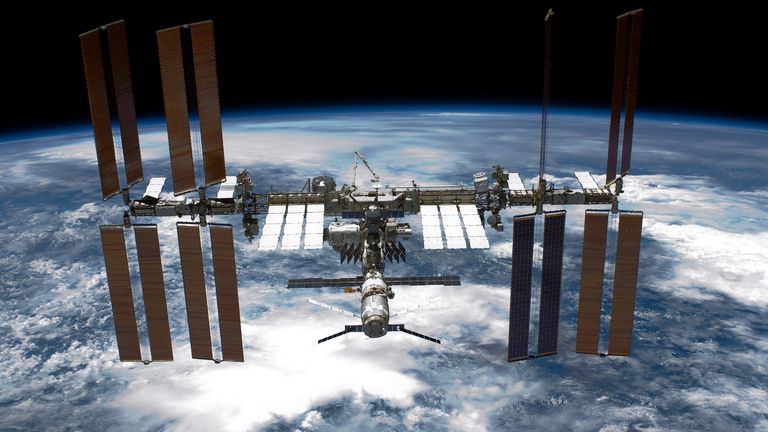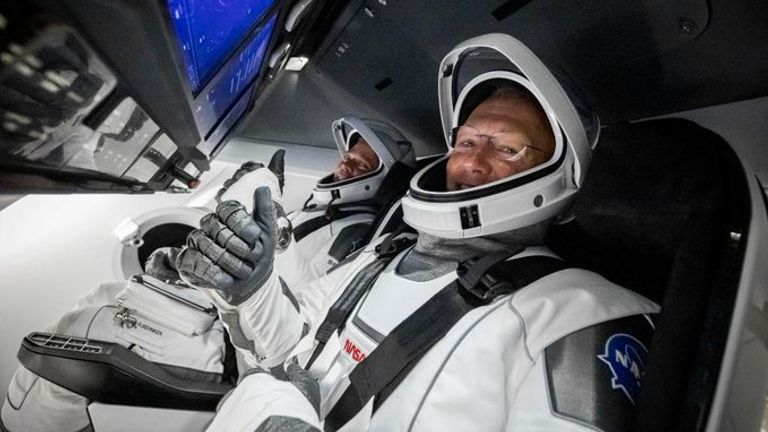A new era in space travel is set to begin this weekend, with the scheduled lift-off of SpaceX’s first operational crewed flight to the International Space Station (ISS).
NASA is using Elon Musk’s aerospace company as a “taxi service” to fly its crew to and from the ISS, a large spacecraft in orbit around Earth.
Three US astronauts and a Japanese colleague from JAXA are scheduled for lift-off in Florida at 7.49pm on Saturday (12.49am on Sunday UK time). Their mission will last six months.
The launch was meant to be on 31 October, but was delayed due to an “unexpected” problem with the rocket.
This will be SpaceX’s second crewed flight for NASA – following the successful Demo-2 flight that launched in May.
Mr Musk’s firm made history when it became the first private company to send humans into orbit six months ago.
US astronauts Robert Behnken and Douglas Hurley travelled to the space station and back as part of a two-month mission to demonstrate SpaceX’s capability to safely perform crewed missions.
Earlier this week, the US space agency confirmed it had approved SpaceX’s Crew Dragon capsule and Falcon 9 rocket to carry astronauts.
It made SpaceX the first commercial human spaceflight system.
Mr Musk said in a statement: “This is a great honour that inspires confidence in our endeavour to return to the Moon, travel to Mars, and ultimately help humanity become multi-planetary.”
Jim Bridenstine, NASA administrator, said: “I’m extremely proud to say we are returning regular human spaceflight launches to American soil on an American rocket and spacecraft.”
NASA astronauts Mike Hopkins, Victor Glover, and Shannon Walker, as well as Japan’s Soichi Noguchi, will make the journey to the space station in the Crew Dragon capsule.
The rocket will separate into a first stage and a second stage soon after lift-off.
The first stage will go back to a SpaceX landing ship off Florida, while the second part will continue the journey with the capsule.
Then in orbit, the capsule will separate from the second stage and head to the ISS.
The project will save the agency a considerable amount of money as it will cost about $55m (£40m) per astronaut, rather than the $90m (£67m) it was being charged by Russia’s space agency Roscosmos.
The astronauts will spend six months on the orbiting space laboratory, conducting scientific experiments and performing various other tasks.
The crew is set to blast off from the Kennedy Space Centre in Florida and then dock with the space station at 4.20am on Sunday (9.20am UK time).
The astronauts will join three other ISS – NASA’s Kate Rubins and Russia’s Sergey Ryzhikov and Sergey Kud-Sverchkov – to become part of the Expedition 64 crew.
Meanwhile, NASA’s other taxi service for hire, Boeing, is not expected to fly its first crew until next summer.
